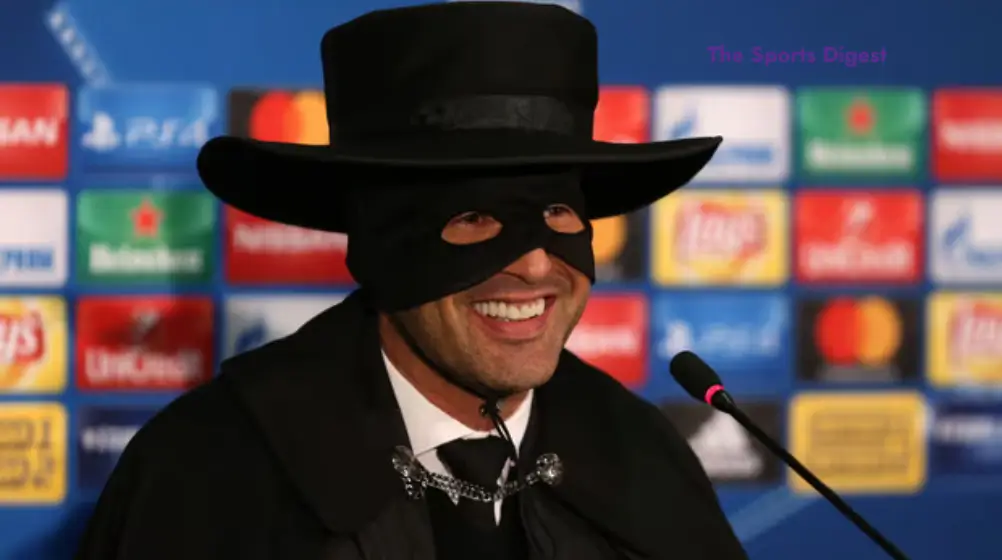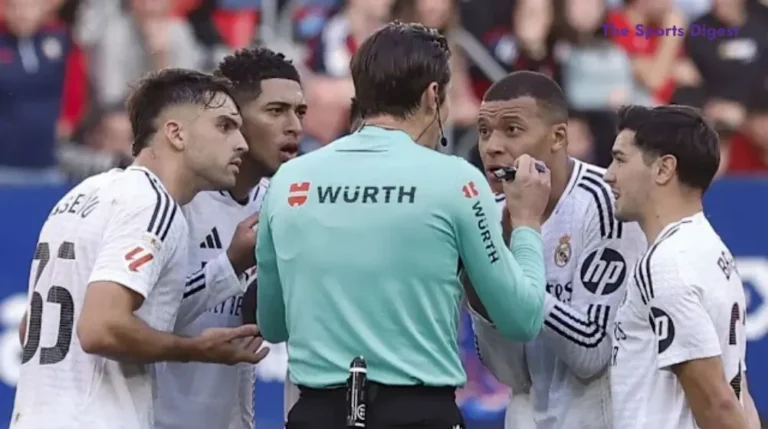Paulo Fonseca Lyon: Revival Mission
In the heart of French football, a powerful story is unfolding. Paulo Fonseca Lyon is more than just a headline—it’s a symbol of resilience, vision, and defiance in the face of adversity. At a time when Olympique Lyonnais had lost its grip on relevance, Fonseca stepped in and rewrote the script. His leadership has sparked a remarkable turnaround that has taken both fans and critics by surprise.
Appointed just two and a half months ago, Paulo Fonseca Lyon has already transformed the team into a formidable force, winning eight of their last eleven matches. The Europa League quarter-final clash against Manchester United is not just a game—it’s a statement. It’s a rare opportunity for Fonseca to lead his squad from the sidelines, given his current domestic ban.
Table of Contents
From Dugout to Press Box: A Controversial Suspension
Paulo Fonseca Lyon takes a dramatic turn with his nine-month suspension from Ligue 1 matches. The punishment came after an intense altercation with referee Benoît Millot during a clash against Brest. While Fonseca admitted his behavior was inappropriate, the scale of the ban shocked many. With no physical contact involved, he believes he has been made a scapegoat in a charged political climate within French football.
“They want to make an example of me for French football,” Fonseca said. Despite acknowledging his error, he insists the ban was disproportionate, especially considering similar incidents across Europe that went largely unpunished.
The Paulo Fonseca Lyon suspension, delivered within three days, reflects a league struggling with internal crises. Just a week prior, Marseille’s president had been hit with a 15-game suspension for corruption accusations. In such a tense environment, Fonseca’s outburst was poorly timed—but perhaps unfairly magnified.
Support, Strength, and Survival
The Portuguese manager finds solace in the support from key figures. Lyon’s owner, John Textor, stood firmly behind Fonseca, a rare show of loyalty that deeply impacted him. “That’s what made me strong, and want to continue,” he said. That backing gave him renewed purpose.
Even Jürgen Klopp has voiced support for Fonseca, who now awaits an appeal hearing next month. The incident could’ve derailed his career, but Paulo Fonseca Lyon has instead become a story of second chances and relentless drive.
From Milan to Lyon: Lessons in Leadership
Fonseca’s recent journey includes a short, bittersweet spell at AC Milan. Hired in June, dismissed by December—his time there was brief yet instructive. “I think the mentality in Italy is totally different,” he reflects, noting the lack of patience coaches often endure.
At Lyon, he’s been given that time—and it’s paying off. A recent win against Lille, a club he once managed, has brought Lyon within touching distance of a Champions League return. “We tried to make them play like a team, to have a clear intention in the game,” Fonseca explains. “The improvement has come because they understand that.”
Tactical Clarity and a New Identity
One of Fonseca’s core contributions is organizational structure. When he arrived, Lyon had talent but lacked cohesion. With his methods, Paulo Fonseca Lyon became more than a team—it became a unit.
His defensive organization and strategic clarity helped unlock the potential already present in the squad. The players are now executing a well-defined game plan, with visible improvements in their transitions, pressing patterns, and build-up play.
Fonseca’s tactical identity—progressive, attacking football with balance—has started to take root in Lyon, despite the obstacles.
Shadows of War: A Personal Perspective
Fonseca’s past isn’t just football. His time at Shakhtar Donetsk changed his life. There, he won three doubles and met his wife, Katerina. But the Russian invasion of Ukraine in 2022 forced a harrowing escape from Kyiv.
“It’s really difficult for me to watch what happens there every day,” Fonseca says. His words go beyond sport. He speaks passionately about the world’s moral failures, from Ukraine to Palestine, emphasizing the need for stronger, united global action. His experiences give Paulo Fonseca Lyon a human depth rarely seen in modern coaching.
French Football and the Wealth Divide
Fonseca also worries about football’s growing inequality. The dominance of PSG, he warns, risks becoming a model replicated across Europe. “Please don’t create a big gap between the teams,” he urges. For Paulo Fonseca Lyon, fair competition is not just desirable—it’s essential to the sport’s soul.
In Ligue 1, where PSG’s financial muscle skews the landscape, Fonseca still finds hope. “We have seven teams fighting for Champions League places this year,” he says. That parity, however fragile, is what makes the league exciting.
Looking Ahead: Amorim, Europe, and Legacy
As Lyon prepares to face Manchester United, Fonseca speaks warmly of his opposite number, Ruben Amorim. Both Portuguese, both ambitious, both navigating tough transitions. “Very honest, very humble,” he says of Amorim. It’s clear there’s mutual respect.
This upcoming fixture isn’t just a test—it’s a showcase. For Paulo Fonseca Lyon, it’s a chance to prove that belief, organization, and resilience can still overcome giants.
Conclusion: Building a Legacy, Step by Step
Fonseca is determined to stay and build something lasting at Lyon. “I hope to stay here a long time and build something special,” he says. Despite the suspension, the uncertainty, and the noise, Paulo Fonseca Lyon is becoming a narrative of hope.
It’s not just about trophies—it’s about identity, unity, and resurgence. If Fonseca can guide Lyon to continental success or even a Champions League return, his legacy in French football will be undeniable.
In a world obsessed with immediate results, Fonseca is playing the long game. And if his recent results are anything to go by, Lyon may soon return to where they once belonged—at the very top.
Have you ever read an article like this?
There are no reviews yet. Be the first one to write one.






